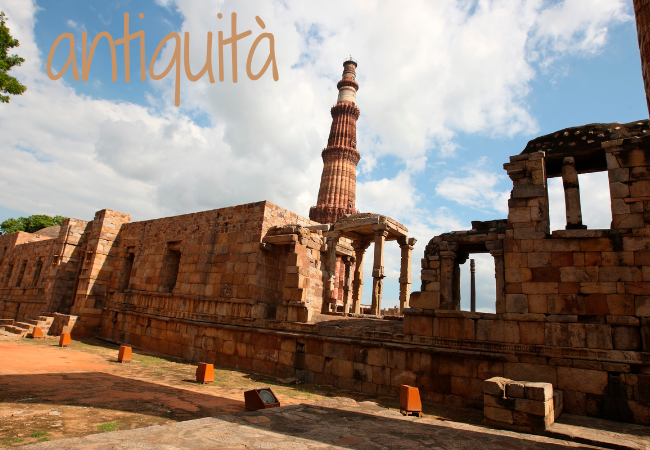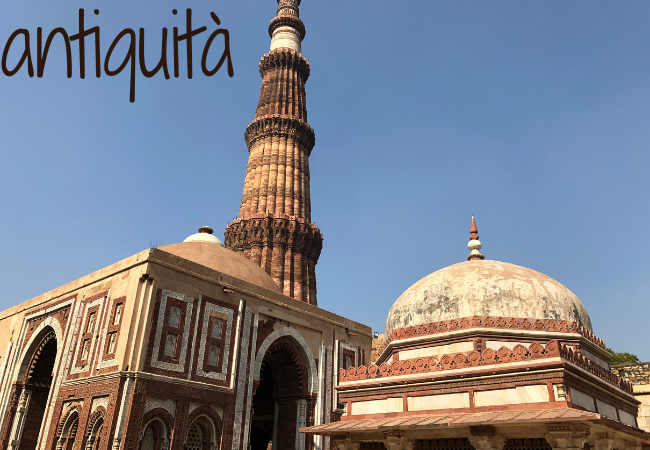Antiquità: Echoes of the Ancient World

The term “antiquità” conjures up images of grandiose temples, enigmatic artifacts, and tales that have echoed through the annals of history. These ancient epochs, shrouded in mystery and splendor, invite us to step back in time and experience the roots of human civilization. But what is it about antiquità that captivates our hearts and minds?
The Enchantment of Ancient Times
There’s a timeless allure to ancient civilizations. The grandeur of their architectural marvels, the depth of their philosophies, and the richness of their cultures create a tapestry of human achievement that is both humbling and inspiring. From the earliest settlements in Mesopotamia to the majestic pyramids of Egypt, the world of antiquità is a treasure trove of human ingenuity and perseverance.
Why Study Antiquità?
Studying antiquità allows us to understand the foundations upon which modern society is built. It offers insights into the origins of governance, art, literature, and technology. More importantly, it connects us to our ancestors, providing a sense of continuity and shared heritage.
The Dawn of Civilization
Mesopotamia: The Cradle of Civilization
Often referred to as the birthplace of civilization, Mesopotamia lies between the Tigris and Euphrates rivers. This fertile crescent nurtured some of the earliest human societies, including the Sumerians and Babylonians.
Sumerians and Their Innovations
The Sumerians were pioneers in many fields. They developed one of the first writing systems, cuneiform, which revolutionized communication and record-keeping. Their architectural achievements, such as ziggurats, stand as testaments to their ingenuity.
Babylonian Wonders
Babylon, with its famed Hanging Gardens, epitomizes the splendor of ancient Mesopotamia. The Code of Hammurabi, one of the earliest written legal codes, showcases the sophisticated legal systems of the time.
Ancient Egypt: Land of Pharaohs
The civilization along the Nile River is synonymous with monumental architecture and enigmatic culture. The pyramids, standing tall against the desert backdrop, are enduring symbols of ancient Egypt’s grandeur.
The Pyramids of Giza
These colossal structures were built as tombs for pharaohs, reflecting the Egyptians’ belief in the afterlife. The engineering prowess required to construct these pyramids remains a marvel even today.
Mysteries of the Nile
The Nile was not just a river but the lifeblood of Egyptian civilization. It facilitated agriculture, trade, and transportation, and its predictable flooding cycles ensured the fertility of the land.
Classical Antiquity
Greece: Birthplace of Democracy
Ancient Greece laid the groundwork for Western civilization, particularly in the realms of philosophy, politics, and art. Its contributions continue to influence modern thought and society.
Philosophers and Thinkers
Figures like Socrates, Plato, and Aristotle shaped philosophical discourse, exploring concepts of ethics, metaphysics, and epistemology that still resonate today.
Mythology and Gods
Greek mythology, with its pantheon of gods and heroic tales, provided a rich narrative framework that explained natural phenomena and human behavior.
Rome: The Eternal City
The Roman Empire, with its vast expanse and enduring legacy, played a crucial role in shaping the ancient world and, by extension, the modern one.
Roman Law and Governance
Rome’s legal system and republic model influenced contemporary legal frameworks and political structures. Concepts like the Senate and citizen rights trace their origins to Roman governance.
Architectural Marvels
Roman architecture, from the Colosseum to aqueducts, showcased advanced engineering and aesthetic sensibilities. These structures not only served practical purposes but also symbolized the might of the empire.
Eastern Antiquity
Ancient China: Empire of the Middle Kingdom
China’s ancient history is marked by dynastic cycles, monumental constructions, and profound philosophical contributions.
The Great Wall and Silk Road
The Great Wall stands as a testament to the defensive strategies and architectural capabilities of ancient China. The Silk Road facilitated trade and cultural exchange, linking China with the broader world.
Philosophical Pioneers: Confucius and Laozi
Confucianism and Daoism, founded by Confucius and Laozi respectively, offered deep insights into ethics, governance, and the natural world, influencing Chinese culture profoundly.
The Indus Valley Civilization

This lesser-known yet remarkably advanced civilization thrived along the Indus River, with urban planning and societal organization that astonish archaeologists.
Urban Planning and Society
The cities of Harappa and Mohenjo-Daro exemplified sophisticated urban planning with grid layouts, drainage systems, and standardized weights and measures.
The Enigma of the Script
The Indus script remains undeciphered, adding an element of mystery to this civilization’s rich heritage.
Cultural Riches of Antiquità
Art and Sculpture
The artistic expressions of ancient civilizations reveal their values, beliefs, and aesthetics, preserved through millennia in sculptures, paintings, and artifacts.
Greek Sculptures and Roman Mosaics
Greek sculptures captured the human form with unprecedented realism, while Roman mosaics depicted daily life and mythological scenes in intricate detail.
Egyptian Hieroglyphs and Tomb Paintings
Hieroglyphs served both decorative and communicative purposes, chronicling historical events and religious beliefs. Tomb paintings provided vivid depictions of the afterlife and daily activities.
Literature and Philosophy
Ancient texts provide a window into the minds and souls of our ancestors, conveying timeless wisdom and stories.
Homer’s Epics and Virgil’s Aeneid
Works like the Iliad and the Odyssey by Homer and the Aeneid by Virgil have become cornerstones of Western literary canon, offering epic narratives of heroism, adventure, and divine intervention.
Eastern Philosophical Texts
Texts like the Analects of Confucius and the Dao De Jing by Laozi explore profound philosophical ideas that continue to resonate with modern readers.
The Legacy of Antiquità
Influence on Modern Society
The legacy of antiquità is evident in numerous facets of contemporary life, from political systems to cultural practices.
Democratic Ideals
The democratic principles developed in ancient Greece underpin many modern political systems, emphasizing civic participation and individual rights.
Architectural Inspiration
Architectural elements from antiquity, such as columns and domes, continue to inspire contemporary building designs, reflecting timeless aesthetics.
Preservation and Study
Efforts to preserve and study ancient civilizations are crucial for understanding our shared heritage and ensuring its continuity for future generations.
Archaeological Discoveries
Ongoing excavations and research continue to uncover new facets of ancient civilizations, providing fresh insights and fueling our fascination with the past.
Museums and Collections
Museums around the world house invaluable collections of artifacts from antiquità, making these treasures accessible to the public and fostering a deeper appreciation for our ancient heritage.
Conclusion
Reflecting on the Past
Antiquità is more than a collection of relics and ruins; it is the story of humanity’s journey through time. By delving into the past, we gain a greater understanding of our present and can better shape our future.
The Eternal Allure of Antiquità
The allure of antiquità lies in its timeless beauty, its mysteries yet to be uncovered, and its profound influence on the world we know today. It reminds us that while empires may fall, the legacies they leave behind endure, whispering tales of glory, wisdom, and the indomitable human spirit.
FAQs
What is the significance of studying antiquità?
Studying antiquità helps us understand the origins of modern society, including its governance, art, and technology. It connects us to our past and provides insights into human development and culture.
How have ancient civilizations influenced modern life?
Ancient civilizations have profoundly influenced modern life through contributions to democracy, legal systems, architecture, literature, and philosophy, many of which form the foundations of contemporary society.
What are some of the most notable archaeological finds?
Some notable archaeological finds include the Rosetta Stone, the Terracotta Army, the Dead Sea Scrolls, and the ruins of Pompeii. These discoveries have provided invaluable insights into ancient cultures and histories.
Why are ancient philosophies still relevant today?
Ancient philosophies offer timeless wisdom on ethics, governance, and human behavior. Philosophical teachings from figures like Socrates, Confucius, and Laozi continue to influence modern thought and guide contemporary societal values.
How can we preserve the legacies of ancient civilizations?
Preserving the legacies of ancient civilizations involves continued archaeological research, conservation efforts, and public education through museums and academic institutions. Engaging with and valuing our shared heritage is crucial for its preservation.



